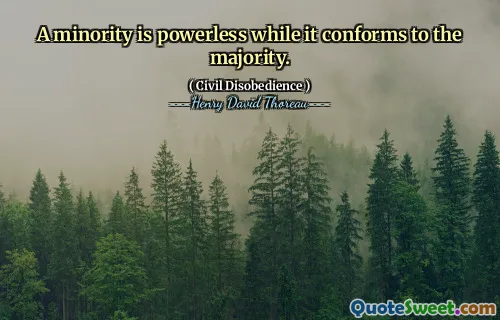
There is but little virtue in the action of masses of men.
Henry David Thoreau's statement underscores a profound truth about morality and individual integrity. It suggests that the collective actions of large groups do not necessarily embody virtue or moral righteousness. Historically and philosophically, this idea challenges the notion that might or widespread consensus equates to moral correctness. Throughout history, crowds can be swayed, often driven by emotion, ignorance, or bias, leading to actions that may be unjust or unethical. Thoreau emphasizes the importance of personal conscience and individual duty over blindly following the crowd. In a society where social evolution and progress depend on individuals questioning authority and existing norms, this quote encourages us to consider the moral weight of our actions beyond the popularity or size of the groups we belong to. It acts as a reminder that genuine virtue often resides in personal conviction rather than conformity. The practice of independent moral reasoning becomes vital because masses can be manipulated or may act out of self-interest rather than righteousness. This perspective aligns with Thoreau's broader philosophy in 'Civil Disobedience', where an individual must often stand alone against unjust laws or societal norms for the sake of what is morally right. Recognizing that collective action does not inherently guarantee justice enables us to resist the temptation of herd mentality and instead cultivate a moral compass based on integrity and conscience. Ultimately, the quote advocates for mindful individual action and moral responsibility that transcends mere population size or social influence, emphasizing authenticity and virtue in human conduct.











